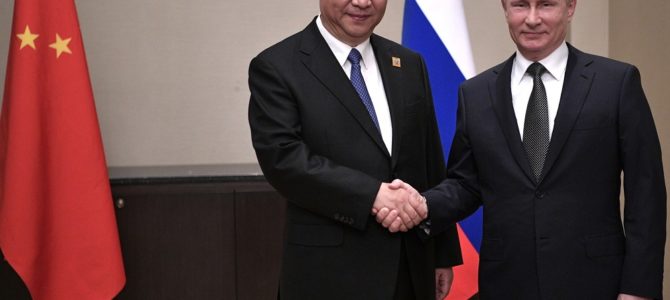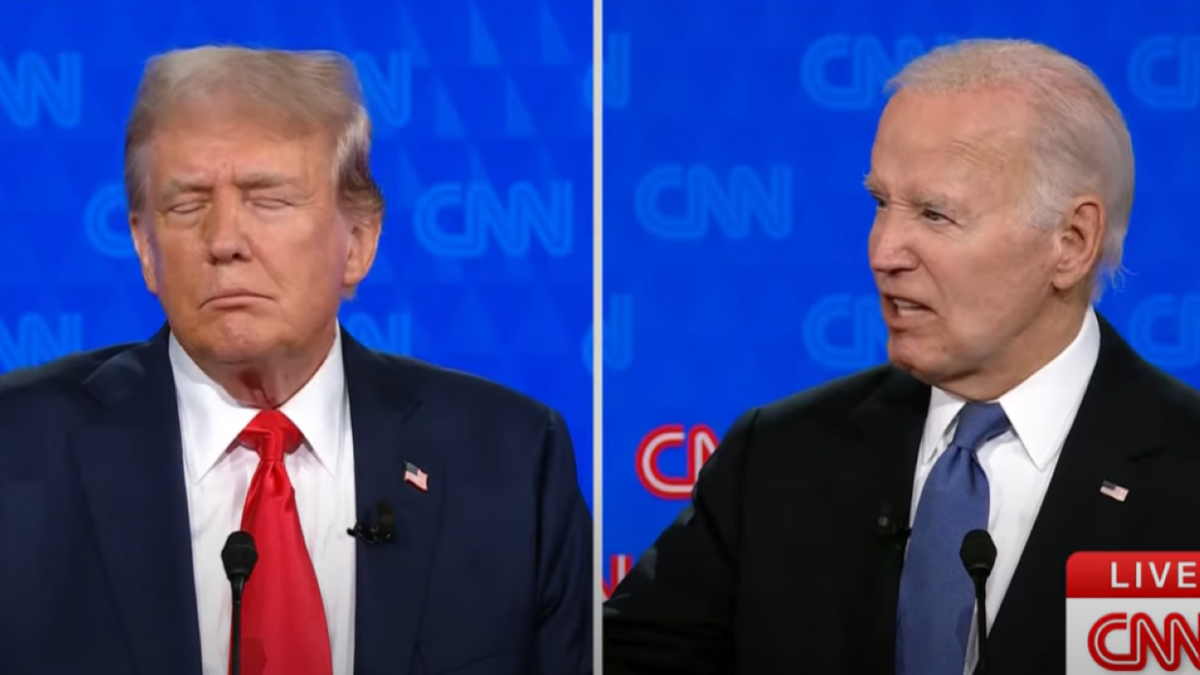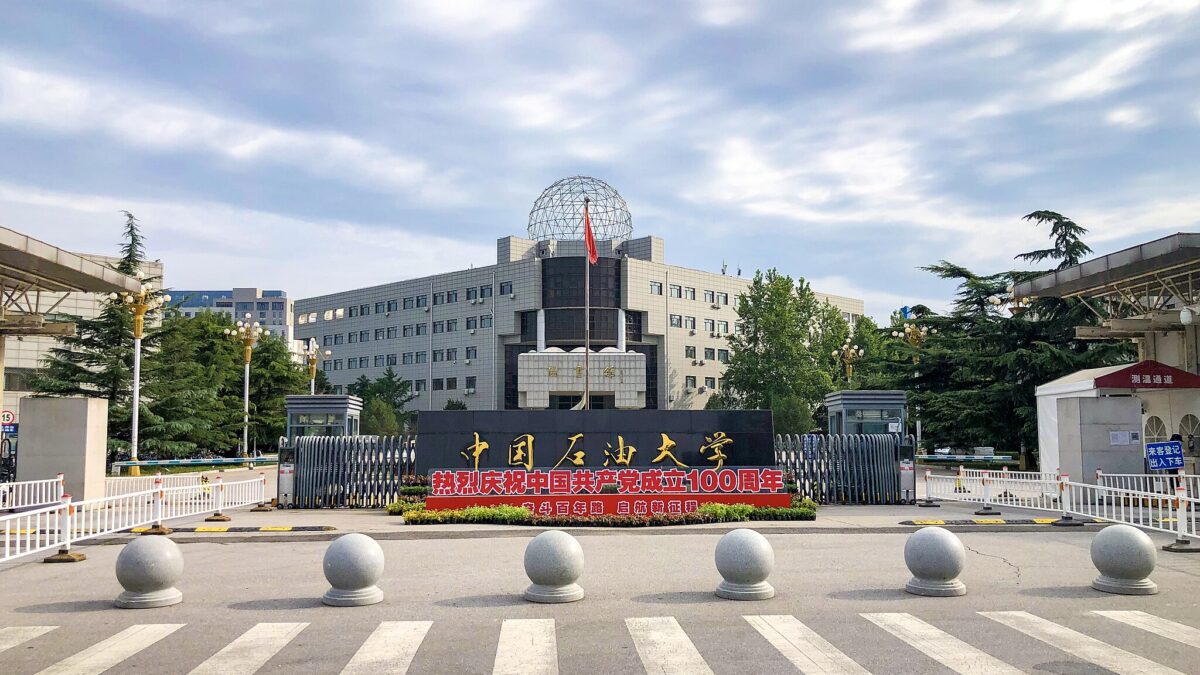
One can learn a lot about how a nation will treat others by how it treats its own. The Chinese Communist Party’s (CCP) oppressive treatment of its people then should send a chilling message to the rest of the world, considering the regime’s global ambitions, and its aggressive effort to achieve them with our cooperation.
While Hong Kong continues hurtling towards a potential modern Tiananmen Square massacre, recently a claimed member of the Chinese political establishment leaked a trove of purported documents to The New York Times regarding the CCP’s establishment of modern-day gulags in Xinjiang province’s “re-education camps.”
Among the major revelations of the 403 pages described by the Times, encompassing speeches from CCP General Secretary Xi Jinping and other officials, are:
- In the wake of several Uighur terror attacks, Xi led the effort to exert totalitarian control over China’s Uighur population, commanding the state to employ “organs of dictatorship” and show “absolutely no mercy” in removing “the toxicity of religious extremism”—manifesting itself in not a targeted counterjihadist campaign but the apparently widespread, indiscriminate, and totalitarian concentration camp-building effort of the last several years;
- Xi believed repression of the Xinjiang population was essential as a broader signal to other potentially problematic cohorts, or otherwise “social stability will suffer shocks, the general unity of people of every ethnicity will be damaged, and the broad outlook for reform, development and stability will be affected”—that is, unrest would threaten the CCP’s objectives, chief among them the perpetuation of its own rule;
- Consistent with this view, under CCP leader of Xinjiang Chen Quanguo, authorities developed propaganda scripts for officials encountering returning students to Xinjiang whose family members had been taken to the camps that downplayed the authoritarian nature of the detentions while threatening the students should they protest;
- Interestingly, perhaps demonstrating a weakness in the CCP system that its foes might exploit, documents indicate a level of resistance among officials tasked with implementing the party’s policies. Thus the party unleashed investigators who conducted more than 12,000 probes into party members alleged to be insufficiently dedicated to the “fight against separatism,” making a public example of one of the most prominent of the resisters. To the extent the leaker’s desires were genuine, and the documents are true, the leak itself might also reflect broader fractures in the system.
Beyond what the report reveals about the mindset of the ruthless CCP ads, one is struck for example by the fact that the CCP seeks to justify to children that having their families taken away from them for state indoctrination is actually a good thing, for which they should be grateful.
One propaganda script reads: “Treasure this chance for free education that the party and government has provided to thoroughly eradicate erroneous thinking, and also learn Chinese and job skills…This offers a great foundation for a happy life for your family.” That individuals might buy this message, or at a minimum keep their mouths shut when faced with it, is perhaps even more telling.
These documents—the release of which Chinese officials have criticized, without denying their authenticity—dovetail with the State Department’s 2018 report on human rights in China, which detailed that last year: “Authorities were reported to have arbitrarily detained 800,000 to possibly more than two million Uighurs, ethnic Kazakhs, and other Muslims in internment camps designed to erase religious and ethnic identities…International media, human rights organizations, and former detainees reported security officials in the camps abused, tortured, and killed some detainees.”
Rule with an Iron Fist
What are we to make of these documents’ release more broadly? For one thing, Xinjiang represents the logical end of CCP tyranny, inflicted upon a population that the party has historically described as “separatist” and today describes as “extremist,” residing in a strategically significant area of its pivotal Belt and Road Initiative (BRI).
The CCP cannot brook any competing ideologies or recalcitrance, especially in areas essential to its drive for hegemony, like the natural resource-rich corridor to Central Asia that is Xinjiang. It must show that it is in total control at all times, indoctrinating, surveilling, and where necessary punishing people to ensure absolute rule.
This was one lesson the Chinese took from the collapse of the Soviet Union. Any alternative idea system that refuses to bend to the state religion of socialism with Chinese characteristics, or that the CCP can use to justify sidelining a perceived adversary, must be purged from the body politic. When Xi said in one of the leaked speeches that “The weapons of the people’s democratic dictatorship must be wielded without any hesitation or wavering,” he meant it.
Hence, not only the persecution of the Uighurs, but the attempts to “Sinicize” all religions, crack down on the reportedly fastest-growing religion of Christianity, dishonor the “One Country, Two Systems” policy with respect to Hong Kong, and target critical voices in the Chinese diaspora and among non-Chinese Westerners. These targeted acts are buttressed by China’s broader human rights abuses covering everything from “disappearances” and torture to the relatively more “benign” interference in and violations of freedom of speech, association, and religion—all aimed at ensuring party dominance.
Leaders of majority-Muslim nations, particularly in the Middle East, have generally remained silent about what has transpired in the province. Why? In a part of the world that historically respects the strong horse, it appears this is a reflection of perceived Chinese strength, combined with a desire to continue bolstering emerging Chinese-Arab ties, BRI-related and beyond, if nothing else as a means of hedging. In other words, it is about fear and greed.
Could anyone imagine these regimes remaining silent in the face of a Western nation pursuing a policy even remotely similar to that of the CCP? This perception of Chinese power and the reality of its influence should trouble the West.
The West Underwriting a Terrorist Regime
Then of course, there is the issue of the West itself—not just our silence, but our responsibility for underwriting and arming the Chinese regime. Just days before the New York Times report and as rubber bullets whizzed by protesters at Hong Kong Polytechnic University, the U.S. Federal Retirement Thrift Investment Board (FTRIB) revealed that in defiance of lawmakers, the Thrift Savings Plan (TSP) it oversees will channel the savings of federal employees into CCP-backed firms to the detriment of our national interest.
The TSP, the federal employee equivalent of a 401(k), which manages upwards of $550 billion in assets, revealed it will invest in the Chinese companies responsible for developing weapons used to threaten the life and limb of our servicemen and from a regime that stole the most sensitive information of millions of federal employees, on top of broader anti-American efforts.
As Secretary of the Navy Richard Spencer put it in a Wall Street Journal op-ed, “Imagine retiring after a long career serving in uniform, only to learn that your savings all those years had helped fund advanced weapons systems for America’s adversaries.”
That is exactly what will now happen, with several billion dollars of federal employees’ savings now slated to be invested in, among other state-owned and state-directed companies, the likes of Hangzhou Hikvision, which produces the cameras used to surveil those held in the Xinjiang camps and with which America’s Big Tech companies continue to transact.
Why the sudden change? Because the FTRIB will now be investing a percentage of its funds to mirror the popular MSCI All Country World Ex-U.S. Index, which includes such companies.
Trade War Stoking Chinese Appetite for Investments
This decision comes against the backdrop of a broader trend of indexes increasing their exposure to Chinese stocks, which means more investor funds from all Americans will be flowing to such companies. As detailed in the recently released annual U.S.-China Commission Report for 2019:
In February 2019, index provider MSCI announced it would gradually increase the weighting of local Chinese stocks in its Emerging Markets Index from 0.71 percent in March 2019 to 3.3 percent by November 2019, with associated capital inflows of up to $80 billion following the adjustment. Separately, the Bloomberg Barclays Global Aggregate Index began to include Chinese bonds in April 2019. By the end of a 20-month phase-in process, Chinese companies are expected to make up 6.1 percent of the index, generating more than $100 billion in foreign capital inflows.
The former re-weighting came, according to the Wall Street Journal, following an intense pressure campaign from the Chinese government to increase the allocation to such stocks in MSCI’s popular benchmark. As a result, as Roger Robinson, an unsung hero of the Reagan National Security Council responsible in part for plans that crippled the Soviet Union economically, put it in a recent speech, while the:
trade war is hurting China…the Chinese can manage it. What would hurt them immeasurably more would be any contraction in their access to our investment dollars…We do not even know the extent of our real exposure to China, because it has dollar-denominated bonds issued elsewhere in the world that are ending up in Americans’ bond portfolios—our investment banks buy them overseas to utilize a loophole in our regulatory structure…in the next 36 months, if nothing is done, our exposure will be two to three trillion dollars more than it is today. The Chinese are moving as fast as they can into the investment portfolios of the American people because they are in desperate need of our dollars.
Beyond the need for dollars, consider the fact that roughly 150 to 180 million Americans have investments in our capital markets. What if these scores of millions of Americans wake up one morning and discover that 15, 18, or 22 percent of their retirement accounts are in Chinese securities? That’s not far-fetched—indeed, it is almost certain to happen if nothing is done. And if that happens, those scores of millions of Americans will have a vested financial interest in opposing any future sanctions or other penalties against China, irrespective of the severity of China’s offenses or the overall threat it poses to America’s national security. That’s what China is knowingly working towards—and that’s called ‘checkmate.’
The Chinese have for decades banked on the world, and in particular its richest nation, prioritizing money over all else, including evidently its long-term national interest. It realized that unlike the Soviet Union, it was far better to “open” itself to the West and thereby leverage our capital, technology, and liberalism while intertwining with us via trade to make it too economically painful for us to sever the relationship once we realized we had enabled the rise of a mortal adversary to freedom.
With China erecting modern gulags and threatening a new Tiananmen in Hong Kong, we in the West cannot avert our eyes from the tyranny we have been underwriting any longer. The vested interests of some Americans in this relationship cannot begin to outweigh the long-term strategic consequences, and the losses suffered by others in an artificial and ultimately self-defeating creative destruction that has taken place.
The fundamental question ultimately we must ask is do we wish to be the proverbial capitalists selling the Communists the rope with which to hang us after their own? Woke Capital and its allies in the political establishment owe the American people an answer.









